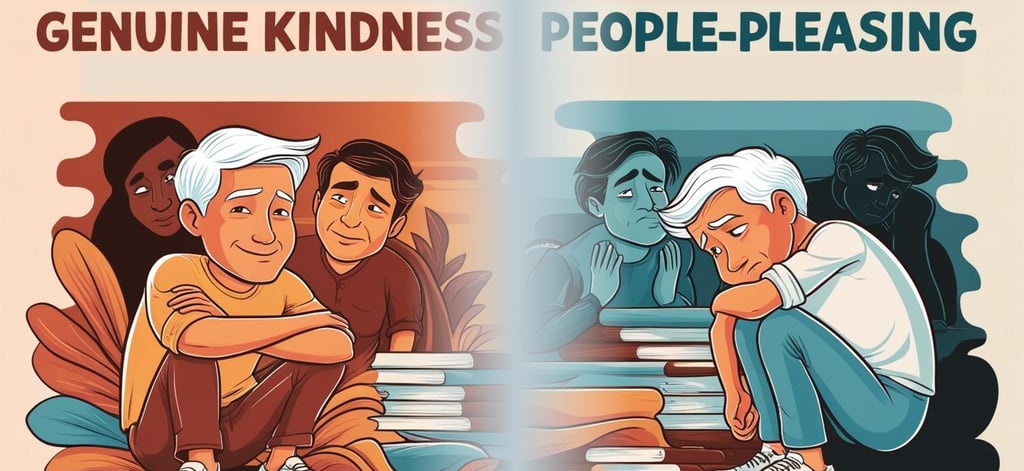Why You Keep Saying Yes When You Want to Say No (And How to Stop)
Struggling with people-pleasing? This blog post breaks down the real reasons you keep saying “yes” when you want to say “no”—and how to stop the cycle without guilt. Learn how to recognize people-pleasing patterns, set boundaries, and prioritize your mental and emotional wellness. If you’ve ever felt burned out from overcommitting, this guide will help you reclaim your time, energy, and voice.
John Adams
5/17/20252 min read


Understanding the Heart of People-Pleasing
Let’s talk about something a lot of us wrestle with but rarely say out loud:
We say yes when we want to say no. We overextend, overcommit, and over-explain ourselves trying to avoid conflict, disappointment, or judgment.
It’s called people-pleasing.
And for most of us, it didn’t start last week. It started years ago.
Maybe you grew up in a home where your role was to keep the peace. Maybe being the "easy one" got you love. Maybe you learned that saying no felt dangerous, selfish, or just plain wrong.
But here’s the truth:
People-pleasing isn’t kindness. It’s fear with a friendly face.
The Patterns That Keep You Stuck
You may not even realize you’re doing it, because people-pleasing wears a lot of disguises:
Saying yes while silently resenting it.
Apologizing for things that aren't your fault.
Feeling responsible for other people’s emotions.
Avoiding rest because it "feels lazy."
Ignoring your needs to avoid disappointing someone else.
These patterns don’t make you weak. They just mean you learned survival through approval.
But surviving is different from living. And this is where the shift begins.
How to Start Saying No Without Losing Yourself
Let’s be clear: You don’t need to burn bridges to build boundaries. You can be kind and clear. Firm and respectful. Compassionate and honest.
Here’s how you begin:
1. Pause Before You Answer
Give yourself a breath before you automatically say yes. A simple, “Let me check and get back to you” creates space.
2. Notice the Guilt Narrative
If you feel guilty for prioritizing your needs, ask: "Who taught me that?" Guilt often comes from old rules, not current truth.
3. Practice Clear, Short Responses
You don’t owe anyone a 15-minute explanation.
"I won’t be able to do that right now, but I hope it goes well!" is both kind and clear.
4. Reconnect With What You Need
What do you need right now? Energy? Time? Space? Choose that without apology.
Living 95: Real Wellness Includes Boundaries
This isn’t just about saying no. It’s about saying yes to your well-being.
In Living 95, we talk about sustainable health and balance. But that only works if you’re allowed to take up space in your own life.
Boundaries aren’t selfish. They’re self-honoring. They make your kindness sustainable. They allow your energy to be protected, not just performed.
You are not too much. You are not behind. You are allowed to grow, even if it disappoints people who liked the version of you who always said yes.
And the best part? You can do it all without losing your heart.
Stay grounded. Stay honest. And when needed—say no.
Inspiration
Empowering your journey to health and wellness.
Contact
johnadams@living95.com
© 2025 Living 95. All rights reserved.
